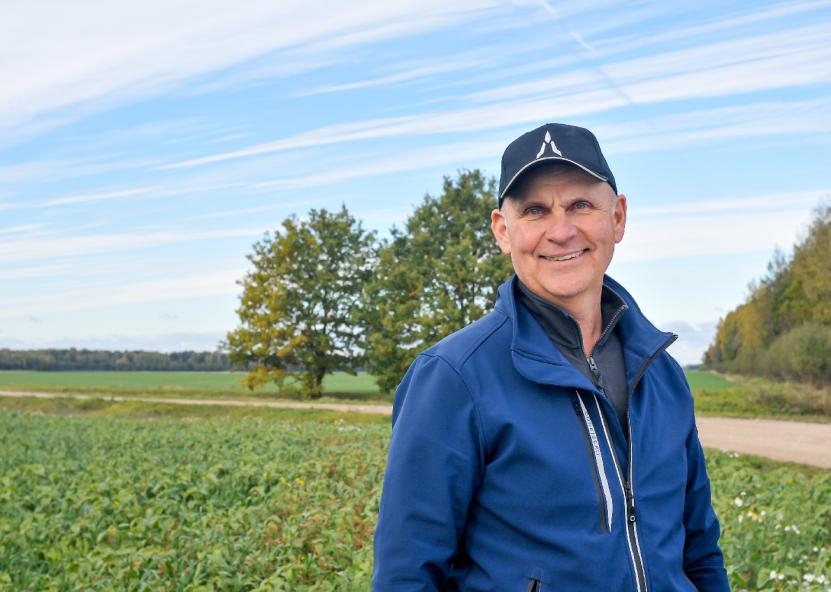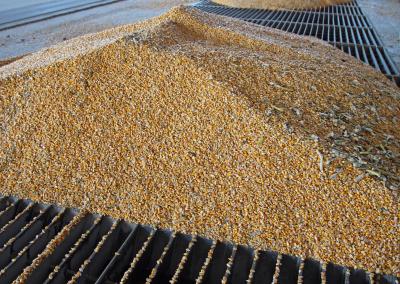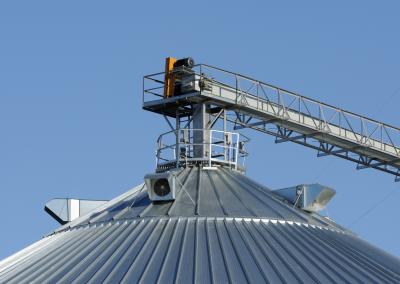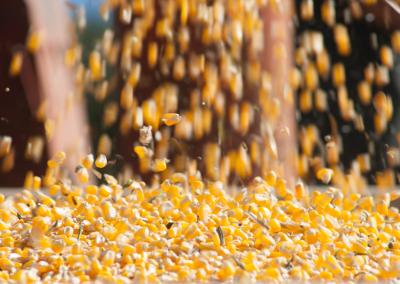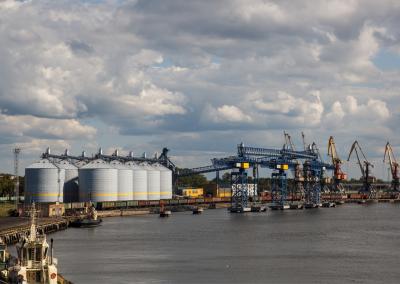Lithuanian grain farmers: stricter controls will not prevent Russian grain from entering Lithuania
The chairman of the Association of Grain Growers, Aušrys Macijauskas, says that the introduction of stricter controls on grain from Russia is a good step, but it will not prevent all grain from entering Lithuania. It is necessary to control grain moving across the Lithuanian-Latvian border and to prohibit the import and transit of Russian grain, both in Lithuania and throughout the European Union (EU), he said.
„Stricter controls will not prevent Russian grain from entering Lithuania all the time, but it is better than nothing. The question remains whether the stricter controls will apply only to imported grain or also to Russian and Belarusian grain in transit through Lithuania. Given that more than 3 million tonnes of Russian grain are transported through Latvia per year, it is necessary to control grain moving across the Lithuanian-Latvian border, in particular to check its origin and quality," A. Macijauskas told Elta.„It is obvious that Latvia is not able to control such a flow of grain, so all grain coming fromš Latvia should be considered as risky. We hope that the Lithuanian Seimas will adopt a law banning any movement of Russian grain, both import and transit, through the territory of Lithuania. The European Union should do the same," he noted.At the time, Karolis &Scaronas, President of the Lithuanian Association of Cereal Processors and Traders, welcomed the move by the Ministry of Agriculture (MAF), describing it as a „clever way to stop the flow“.
„It must be stressed that we are talking about imports, not transit. Tightened inspections and quality testing are a really good thing," K. Šimas told LRT radio last week.
„The Išmanic& thing is that documents are taxed quite heavily, maybe €15–25 per tonne. For those šalims, that alone does not make it worthwhile for them to come to our šalis and other šalis. The increase in the cost of documents is quite išmanus, because a sample is taken for each vehicle“, – – – andšcinema it.
K. Šimas stresses that the bureaucratic restrictions imposed make it more difficult and expensive to import grain into Lithuania. The same approach could be used for the transit of produce, he said.
„Another good thing is that you can only enter a customs warehouse, in Lithuania I think only 5 customs warehouses have been approved, which is a very limited quantity and even after entering you can't load it, because the customs officer has to come and check the quality“, – said the head of the Association of Grain Processors and Traders.
„Bureaucratic restrictions make it more difficult, more expensive to import into Lithuania. (...) It would be welcome to do the same with transit, then maybe transit through our šalis would not go“, – he said.
Stricter controls on grain entering Lithuania from Russia and other high-risk countries started on Monday.
According to the Ministry of Agriculture, as of Monday, the inspection of absolutely all cereals and cereal products intended for foodstuffs imported from high-risk countries has been suspended, and samples are being taken from every wagon or vehicle of the imported products.
The introduction of stricter controls on grain quality is just one of the steps taken by the Ministry of Agriculture. In the near future, once the methodological requirements have been finalised, decisions will also be taken on checking the origin of grain transported through Lithuania.
The Ministry initiated the investigation after receiving information from the Ukrainian Minister of Agriculture about allegations that Russia is profiting from the transport of grain from the occupied Ukrainian territories to third countries.
The list of high-risk countries includes Russia, Belarus, Transnistria, which is not under the control of the Moldovan government, Crimea and other occupied territories of Ukraine, annexed by Russia, and the occupied regions of Abkhazia and Tskhinvali in Sakhartveland.
On Thursday, the State Food and Veterinary Service (SVVT) signed an order amending the rules on the state supervision of food grains of non-animal origin. The same measures will apply to food grains and their products as to feed grains and their products.



































































































